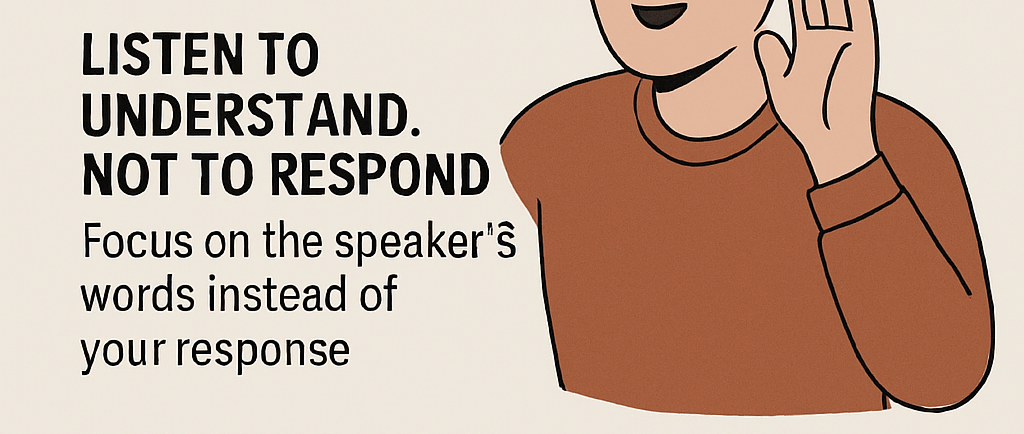How to Build Good Listening Habits


How to Build Good Listening Habits
In an age where distractions are everywhere and attention spans are shrinking, listening—truly listening—has become a rare and valuable skill. Whether you’re a student, professional, parent, or friend, good listening habits can improve your relationships, deepen your understanding, and boost your personal growth. But good listening isn’t just about being quiet while someone else talks—it’s an active, intentional process that takes practice. Here’s how to build strong listening habits that make you stand out.
1. Be Fully Present
The foundation of good listening is presence. That means putting away your phone, turning off distractions, and making eye contact. Listening starts with signaling to the speaker that they matter. Multitasking—checking emails, scrolling social media, or even mentally planning your response—breaks this connection. Presence isn’t just physical; it’s mental and emotional, too.
Tip: Before a conversation, take a breath and mentally commit: “I’m here to listen.”
2. Listen to Understand, Not to Respond
Many people listen only to find a moment to speak. Great listeners pause this urge. They focus instead on understanding the other person’s perspective. This creates a space where the speaker feels heard and respected, and where you can truly absorb their message.
Tip: After someone speaks, try summarizing what you heard before responding: “So what you’re saying is…” This ensures clarity and shows genuine interest.
3. Ask Thoughtful Questions
Good listening isn’t passive. It involves asking open-ended questions that deepen the conversation and show you’re engaged. This not only clarifies meaning but also encourages others to share more freely.
Examples:
• “Can you tell me more about that?”
• “What made you feel that way?”
• “What happened next?”
Asking questions signals curiosity and care, key ingredients in meaningful conversations.
4. Notice Non-Verbal Cues
Listening goes beyond words. Facial expressions, tone of voice, pauses, and gestures carry a lot of meaning. Pay attention to what’s not being said. Sometimes, a person’s body language or tone tells you more than their words can.
Tip: If someone seems uncomfortable or conflicted, gently acknowledge it: “You sound unsure—do you want to talk more about that?”
5. Practice Patience and Silence
It’s tempting to fill silences, but sometimes the best listening happens in the pauses. Silence gives the speaker space to think and continue. Resist the urge to jump in or rush the conversation.
Tip: Count to three in your head after someone finishes talking—you might be surprised what else they say when you simply wait.
6. Reflect and Improve
Listening is a skill, not a fixed trait. Reflect after conversations: Did I interrupt? Did I really understand what was being said? Over time, these reflections help you grow into a more effective, empathetic listener.
⸻
Conclusion
Building good listening habits isn’t complicated, but it does require intention. By being present, listening to understand, asking questions, and practicing patience, you can transform your communication and your relationships. In a noisy world, a good listener is a rare and valuable presence—one worth striving to become.
